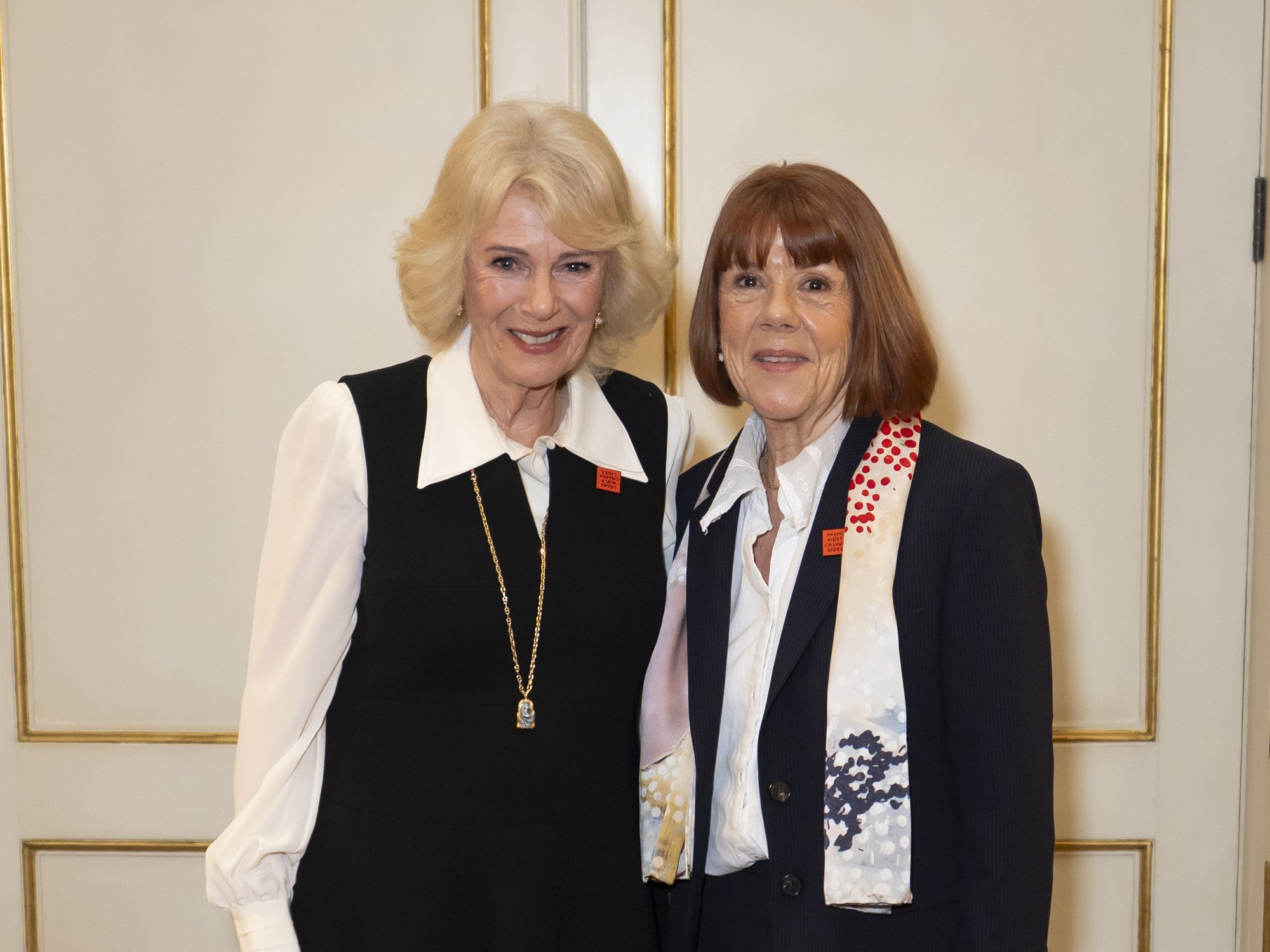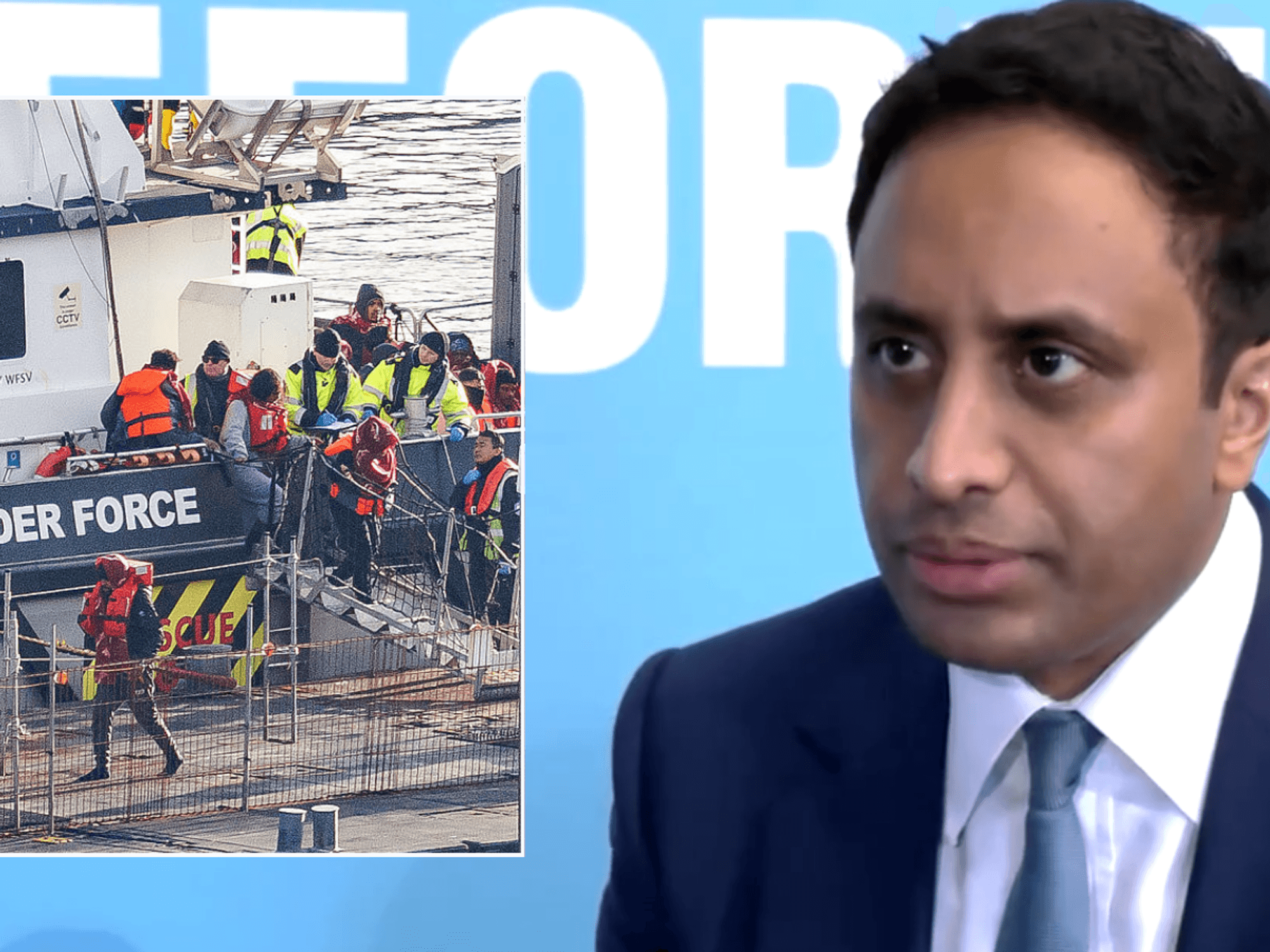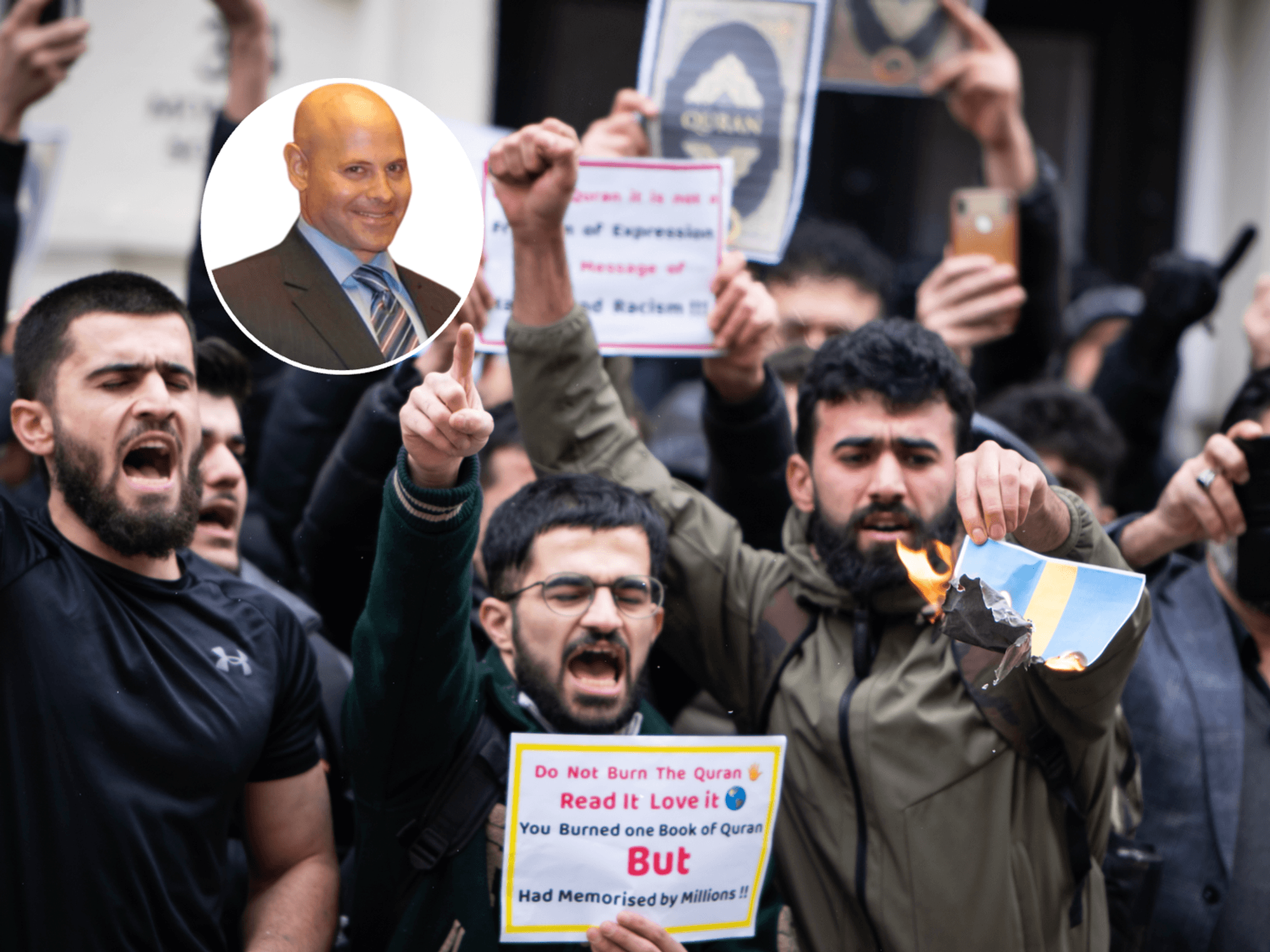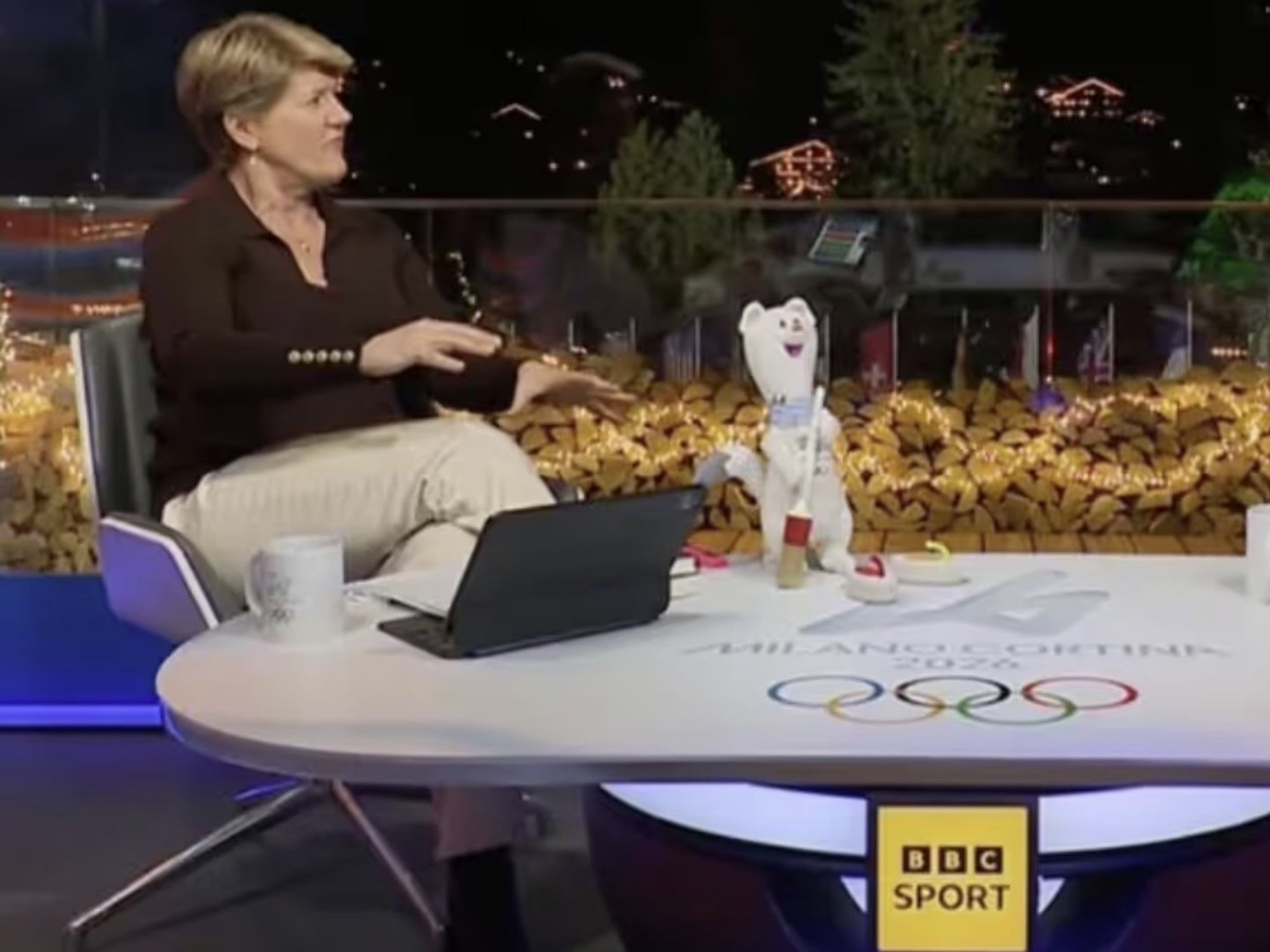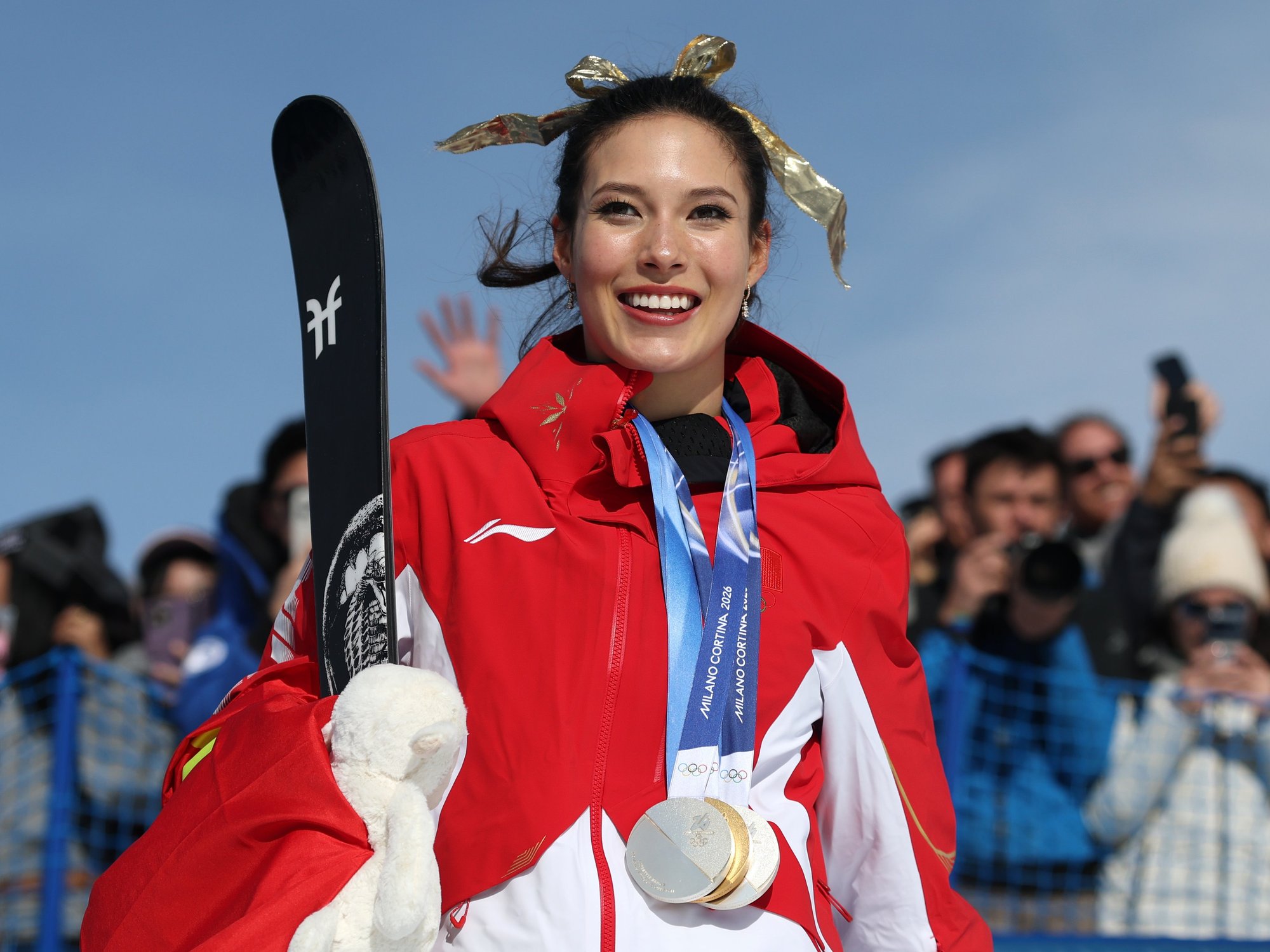Prince William's latest house move 'not tenable' - Inside the Palace
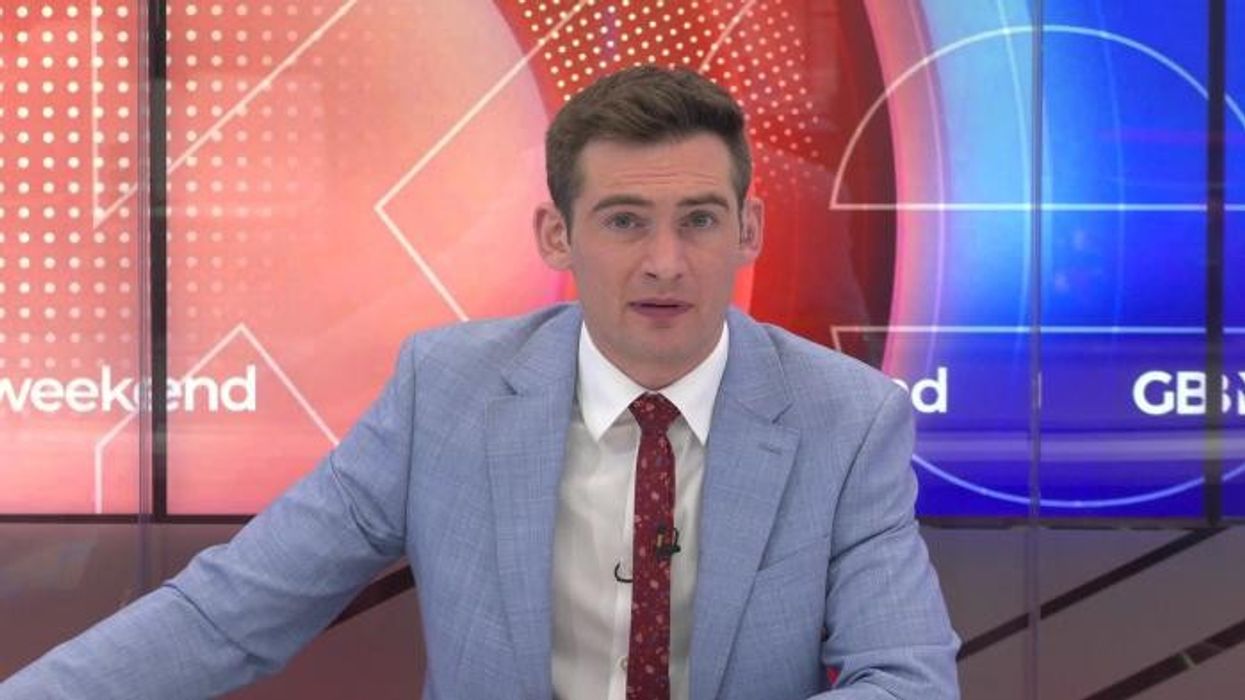
Prince William to break tradition and not live in Buckingham Palace when King, sources claim |
GB NEWS

Later this year, the Prince and Princess of Wales will move into their 'forever home'
Don't Miss
Most Read
Latest
GB News' Royal Correspondent Cameron Walker has provided his exclusive insight into Prince William's house move, Prince Harry's secret tribute to Prince Philip, and an SNP politician's efforts to drop the oath of allegiance to King Charles.
Sign up for the GB News Royal Newsletter to get the latest analysis straight to your inbox.
PRINCE WILLIAM'S LATEST HOUSE MOVE 'NOT TENABLE'
Later this year, the Prince and Princess of Wales will move into their "forever home" with their young family - Forest Lodge in Windsor Great Park.
A Kensington Palace spokesperson told GB News: "The Wales family will move house later this year."
The eight-bedroom mansion is being renovated, with the Prince and Princess of Wales footing the bill to avoid an extra cost to the taxpayer, according to The Sun.
It appears Prince William intends to permanently live in the property, even after he becomes King, instead of moving into Windsor Castle and Buckingham Palace.
This has raised some eyebrows, as the usual custom is to have the monarch residing in London on weekdays and Windsor on the weekends.
Buckingham Palace is set to remain the headquarters of the monarchy, but it appears increasingly unlikely that a reigning monarch will live there again.
The building is undergoing reservicing until 2027, which is the official reason why King Charles and Queen Camilla currently reside in Clarence House.
It is widely believed His Majesty will choose to stay at his late grandmother's former home, rather than move into the so-called big house.
Prince William, meanwhile, shows no signs of intending to move there either.
Last year, Prince William said he was "trying to do it differently" for his generation, suggesting a "smaller R in royal" would be his strategy.
Forest Lodge, by comparison to other royal homes, is relatively small, and "about as isolated as you can get", according to one local who spoke to the press.
The Prince of Wales understandably prioritises his family and privacy above all else, so one can see the appeal of Forest Lodge.
If he continues to live there as King, perhaps the situation could be compared to Spain's King Felipe VI, who lives in a modest home on the outskirts of Madrid, away from the grand Royal Palace of Madrid - the official residence of Spain's Royal Family.
Equally, the Palace of Zarzuela, also on the outskirts of Madrid, perhaps could be compared to Windsor Castle.
The Palace of Zarzuela serves as another residence and the working office of King Felipe.
The future King William could easily commute from Forest Lodge to Buckingham Palace for official work, via the M4 or a faster helicopter, but how often would he realistically do this?
Royal Author Robert Hardman told GB News this week that Prince William residing permanently at Forest Lodge is not "tenable".
Speaking to Jacob Rees-Mogg, he said: "I don't think that's tenable. When the late Queen came to the throne in 1952, she and Prince Philip had just done up Clarence House as a sort of family home with their two young children. They loved it, and they didn't want to move. The Queen Mother, who was resident at Buckingham Palace, didn't want to move out.
"And so they presented [their plans] to the Prime Minister, Winston Churchill, and it was Churchill who said no, no, no, you've got to move in [to Buckingham Palace]. The monarch has to live above the shop."
Jacob replied: "Churchill's advice was right, wasn't it, that the King needs to be the sovereign, needs to be in Buckingham Palace, needs to be present in that central place and that somebody, maybe Keir Starmer, I hope it's one of his long distance successors, will have to give that advice in due course."
Mr Hardman conceded: "That will be a difficult conversation for whichever Prime Minister it is because when you had Winston Churchill, the greatest statesman of the age, in an avuncular way, saying to a 25-year-old mother of two who's very much turning to him for advice. And when Churchill said. 'I think you belong at Buckingham Palace, would you please go there?' Then that's what you did. Of course, [Prince William] will be a harder nut to crack for a future PM, but I think Buckingham Palace depends on having a visceral connection between the monarch and Royal HQ."
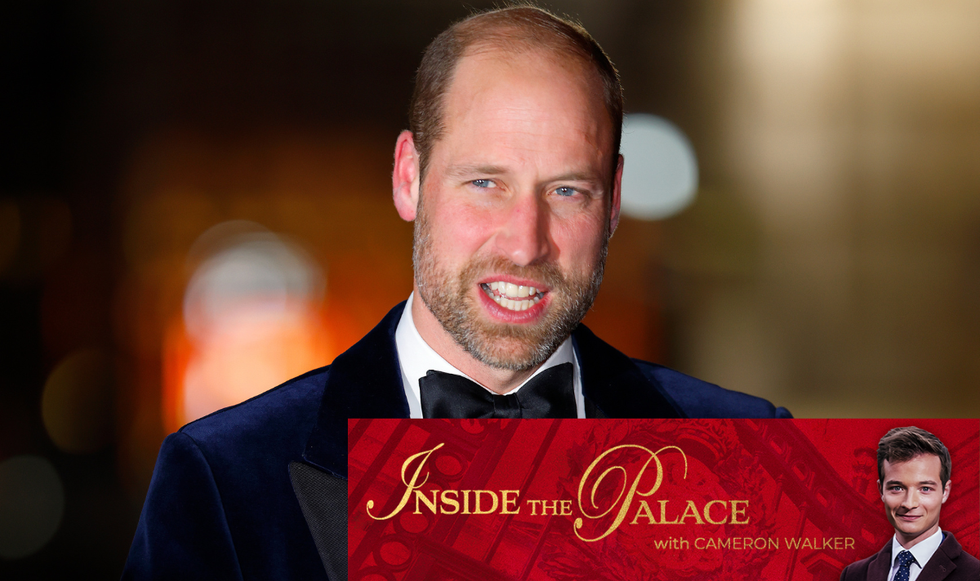
Prince William's latest house move 'not tenable' - Inside the Palace
|GETTY / GB NEWS
EXCLUSIVE: PRINCE HARRY PAYS SECRET TRIBUTE TO HIS GRANDFATHER AT NATIONAL MEMORIAL ARBORETUM
Prince Harry has paid special tribute to his late grandfather, Prince Philip, in a personal letter secretly placed at the National Memorial Arboretum, after Friday's national service of remembrance, attended by King Charles and Queen Camilla.
The Duke of Sussex asked a friend to discreetly place the letter and a wreath at the Burma Star Memorial in Staffordshire, after Their Majesties had departed, in an effort not to distract from official royal commemorations, which marked 80 years since Japan's surrender at the end of World War Two.
Friday's service brought together 33 veterans aged between 96 and 105 who served in the Far East and Pacific, alongside King Charles, Queen Camilla and the Prime Minister.
In the poignant letter, Prince Harry said: "For me, this anniversary carries an added layer of meaning. My late grandfather, Prince Philip, Duke of Edinburgh, served in the Pacific campaign. He spoke with quiet humility about those years, but I know how deeply he respected all who stood beside him in that theatre of war. Today, as I think of him, I think also of each of you, of the shared hardships, the bonds forged, and the legacy you leave."
The Duke of Sussex was understood to be close to his late grandfather before he died, and previously described him as "a man of service, honour and great humour".
The late Duke of Edinburgh was mentioned in dispatches for his bravery during the Battle of Cape Matapan in the early years of the war, before serving in the Far East.
Prince Philip, husband of the late Queen Elizabeth II, was present in Tokyo Bay for the formal Japanese surrender in September 1945.
Last Friday, King Charles addressed the nation to pay tribute to the so-called Forgotten Army - recalling his grandfather, King George VI's, broadcast on VJ Day 1945.
His Majesty also praised the leadership of his great uncle, Lord Mountbatten, but did not mention his father, Prince Philip.
Prince Harry's tribute to his late grandfather formed part of a lengthy statement, thanking the men and women for their sacrifice for the freedom of future generations.
In his letter addressed to the Forgotten Army, The Duke of Sussex said: "On this 80th anniversary of VJ Day, we pause to remember the day the guns finally fell silent across the world, the true end of the Second World War. We also pause to recognise you, the men and women of the 'Forgotten Army,' whose courage and endurance in the Far East campaign were anything but forgettable.
"You faced an enemy determined to the last, fought in unforgiving terrain, and endured months - even years - far from home, in conditions most could scarcely imagine.
"Your service in the jungles and mountains of Burma and beyond was marked by grit, unity, and sacrifice. It is because of that sacrifice that generations since, myself included, have been able to live in freedom. From the lessons of that bitter struggle came the understanding that even the fiercest of foes can, in time, become valued partners in peace.
"Today, as both our nations mark this anniversary, we acknowledge the respect earned, the lives lost and the enduring friendship that has since taken root.
"For me, this anniversary carries an added layer of meaning. My late grandfather, Prince Philip, Duke of Edinburgh, served in the Pacific campaign. He spoke with quiet humility about those years, but I know how deeply he respected all who stood beside him in that theatre of war. Today, as I think of him, I think also of each of you, of the shared hardships, the bonds forged, and the legacy you leave.
"I am humbled by your example, proud of your service and dedication, and profoundly grateful for what you endured. Your story is part of our shared heritage, and it must never be forgotten. With the deepest respect, thank you."
He signed the letter: "Prince Harry, Duke of Sussex."
Prince Harry served in the British Army for 10 years, including two tours of Afghanistan.
With the help of The Royal Foundation, formerly The Royal Foundation of The Duke and Duchess of Cambridge and Prince Harry, he founded the Invictus Games in 2014, which offers a recovery pathway for international wounded, injured and sick servicemen and women in a Paralympic-style competition.
The Invictus Games is coming to Birmingham in 2027, and Prince Harry has reportedly invited his father, King Charles, adding to speculation that both sides could reconcile their fractured relationship.
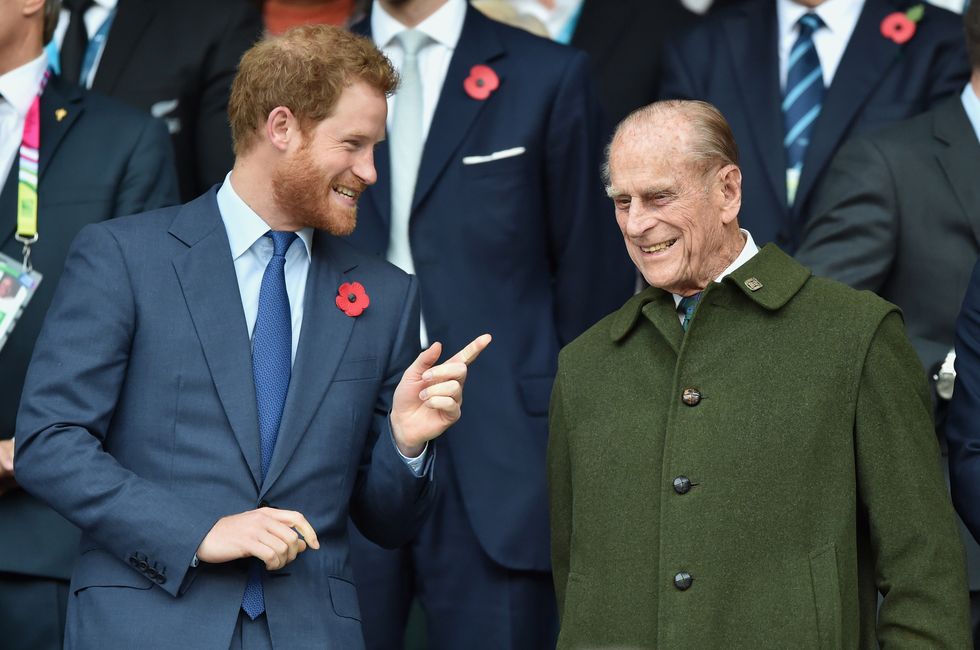 Prince Harry has paid special tribute to his late grandfather, Prince Philip, in a personal letter secretly placed at the National Memorial Arboretum, after Friday's national service of remembrance, attended by King Charles and Queen Camilla. | GETTY
Prince Harry has paid special tribute to his late grandfather, Prince Philip, in a personal letter secretly placed at the National Memorial Arboretum, after Friday's national service of remembrance, attended by King Charles and Queen Camilla. | GETTYKING OATH
A politician has been branded "shameless" for launching a bid to drop the oath of allegiance to King Charles in the Scottish Parliament.
Kevin Stewart, the Scottish National Party MSP for Aberdeen Central, launched a motion following Grenada's decision to drop the oath from their national Parliament.
Grenada is one of 15 countries, including the United Kingdom, where His Majesty King Charles III reigns as Head of State.
Writing on X, formerly Twitter, Mr Stewart said: "Grenada has decided to drop the oath of allegiance to the King, isn’t it time that Scotland followed their lead? I’ve lodged a Scottish Parliament calling for us to have the power to have MSPs pledge their allegiance to the people of Scotland and not the British crown."
Under the Scotland Act 1998, Members of the Scottish Parliament (MSPs) must take an oath of allegiance, or make a solemn affirmation, before they can take part in parliamentary business.
If they refuse, they cannot sit, speak or vote in the Scottish Parliament - similar rules apply in all Parliaments and Legislatures across the United Kingdom.
The Aberdeen's Central MSP's lodged motion reads: "That the Parliament commends Grenada’s reported decision to drop the oath of allegiance to the British crown and replace it with a pledge of allegiance to Grenada; recognises that the people of Scotland are sovereign, and believes that Scotland’s Parliament should have the power to follow Grenada’s lead and have its members pledge allegiance to the people of Scotland and not an unelected monarch."
The Scottish Conservatives have accused the SNP of focusing on "constitutional navel gazing" instead of "tackling real priorities".
Scottish Conservative MSP Murdo Fraser told GB News: “This is a shameless bid from an SNP MSP to try and pander to republican voters inside and outside of his party.
“The reality is that the King and the monarchy remain one of the most loved and respected institutions across Scotland.
“Most people will wonder why nationalist MSPs are focusing on this constitutional navel gazing at a time when they should be tackling the real priorities of Scots.
“They want this SNP government to be focused on reducing NHS waiting times, growing the economy and restoring standards in our schools, rather than engaging in the worst sort of petty student politics.”
In response, Mr Stewart said: "My loyalty is to the folk of Aberdeen and to the people of Scotland as a whole and every politician should feel likewise.
"It is quite galling that a Tory has the audacity to talk about pandering when their entire ethos at the moment is to pander to Nigel Farage, Reform and the far right."
Will the oath be dropped?
If the motion gains enough support, it could be debated in Holyrood, but any vote passed in the chamber would not have the power to change the law.
This is because the Scotland Act 1998 is a piece of UK-wide legislation passed in Westminster, so the Scottish Parliament cannot override the requirements to swear allegiance to the King.
A change in the law would be required from the UK Parliament in Westminster, or further powers would need to be devolved to Holyrood.
In July 2024, Labour MP Clive Lewis was warned by House of Commons officials that he could be breaching the law for refusing to properly swear allegiance to The King during his swearing-in ceremony.
Originally, Mr Lewis delivered a political statement before he partially swore allegiance, saying: "I take this oath under protest, and in the hope that one day my fellow citizens will democratically decide to live in a republic."
He then reluctantly swore allegiance to the King, but refused to do the same for "his heirs and successors" - Prince William and Prince George are first and second in line to the throne.
Instead of risking a fine or his seat being vacated under the Parliamentary Oaths Act 1866, Mr Lewis chose to take his oath correctly at a later date.
So far, Kevin Stewart's motion is being supported by 10 fellow SNP's, one Labour, and one Green Party politician.





